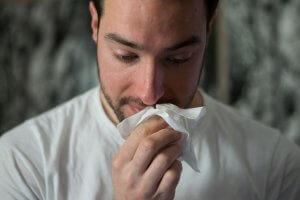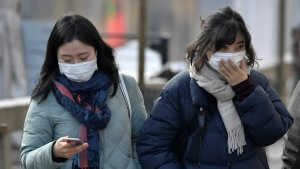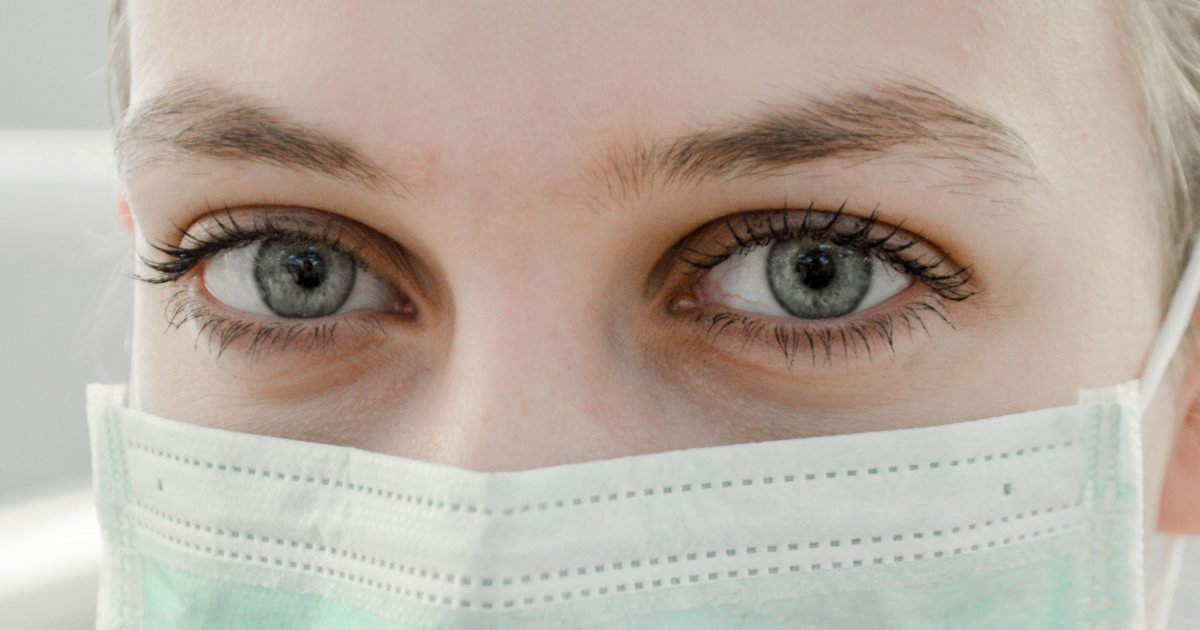Coronavirus - What People With Cancer Need to Know
- The virus is spread from person to person similar to the common cold.
- The CDC recommends everyone take precautions, such as washing hands regularly and keeping a safe distance (3 feet) from people showing symptoms.
- People with compromised immune systems — like those with cancer — may want to wear surgical masks when out in crowded areas.
“I worry about every virus, not just the coronavirus, but yes, with that one, I’d be in trouble,” Nick Costas, who just completed a stem cell transplant for multiple myeloma, tells SurvivorNet. “Right now, I have the immune system of an infant.”
Read More1. The Virus Can Easily Spread Through The Air
This type of coronavirus can spread from person to person similar to how the common cold is spread. If a person is infected and coughs or even exhales deeply in the vicinity of another, there’s a chance that the virus may be spread. Specifically, it’s transmitted through small respiratory droplets that commonly travel from people in a close vicinity.

Of the roughly 70 confirmed cases in the U.S., only two people contracted the virus through unknown origins — meaning they were not recently in China, on the Diamond Princess cruise ship or in close contact with someone who had recently been to China.
Because the virus is relatively easy to spread, the Centers for Disease Control and Prevention (CDC) recommends staying 3 feet away from anyone who is sick.
2. There are Preventative Measures Everyone Can Take
No. 1 among those is washing your hands, according to the CDC. As most people with compromised immune systems know, keeping you hands clean makes a major difference.
The CDC also recommends limiting contact with your eyes, nose and mouth. Because it’s so easy to pick up germs with our hands, it’s a safe bet to avoid touching areas where we can easily transmit germs into our bodies.
For the good of the general public, the CDC also recommends staying home if you’re feeling sick. Symptoms of the coronavirus include fever, runny nose, fatigue, cough and difficulty breathing. Even if these symptoms are not severe, which the CDC says can happen in some cases of coronavirus, it’s a good idea to wait any illness out away from public places.
3. Wearing a Mask May Help, In Some Cases
People monitoring the coronavirus outbreak have likely seen photos of people in China and other parts of the world walking around with surgical masks on. While these masks are far from fool-proof, they have been shown to prevent the spread of some airborne illnesses like the flu.

Those with compromised immune systems may want to wear masks when out in crowded places, Dr. Sairah Ahmed, who works in MD Anderson’s Cancer Center’s Department of Lymphoma and Myeloma, Division of Cancer Medicine, told SurvivorNet in a previous interview about the virus.
However, the CDC notes that masks should only be utilized by those who need them — such as immunocompromised people, people who have symptoms of coronavirus or people caring for others who have symptoms — because these are a necessary resource for people who may be sick or may care for those who are sick, and shouldn’t be wasted.
4. Disposing of Masks Correctly Is Important
The CDC notes that putting on and taking off masks in a safe way is important for those who have to use them. Hands should be washed thoroughly with soap and water before putting on a mask, and after disposing of it.
Masks should be disposed of in closed bins immediately after use.
5. Remember, the Risk to the General Public Is Still Low
According to health officials, the risk to the general public in America is still considered low at this time.
The CDC says that they plan to have every state and local health department equipped with testing kits for the virus by next week, as the cases that were contracted by unknown origins in the U.S. suggest that the virus is spreading within communities, even with the efforts to contain it. The ability to test for the virus will hopefully allow local health officials to contain anyone who tests positive quickly and efficiently.
President Trump also expanded travel bans over the weekend to Iran, South Korea and certain areas of Italy that have seen the worst outbreaks.
What Is Coronavirus?
There are currently seven coronaviruses known to infect humans. Four of them are linked to what most people refer to as the common cold; and the other three are Severe Acute Respiratory Syndrome (SARS), Middle East Respiratory Syndrome (MERS) and the current virus — 2019 Novel Coronavirus.
Dr. Waleed Javaid explains what coronaviruses are and what precautions immunocompromised people should take now.
Dr. Waleed Javaid, director of Infection Protection and Control at Mount Sinai, told SurvivorNet that one thing people worried about contracting the virus can do is restrict travel or interaction with people who have recently traveled to affected areas.
“I think for protecting yourself … right now there is restriction in travel,” Dr. Javaid said. “CDC has restricted all nonessential travel to China, and I think we should follow that recommendation. We should also closely follow the CDC recommendations for other places where this virus has been.”
Learn more about SurvivorNet's rigorous medical review process.


